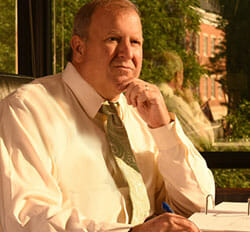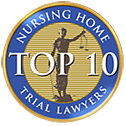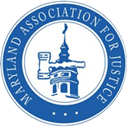Safety Hazards in Assisted Living Facilities
There are many moving parts to assisted living facilities. They are not just buildings where people live, like apartment buildings. Residents are fed, have their personal needs attended to and receive help with their medical care. As a result, there are numerous things that can go wrong if a Maryland assisted living facility is not correctly managed, isn’t properly furnished or maintained, or employs staff who don’t live up to expectations.
The Assisted Living Federation of America (ALFA, which is now known as Argentum) published a list of the most common deficiencies cited by state inspections from 2006 to 2011. Some of their findings follow:
- Nationwide, medication administration was the most frequently cited deficiency. Of the 48 states reporting information, 42 reported that medication administration problems were in their top ten most frequently cited violations. This can include not administering medications as directed, using an outdated physician’s order or failing to correctly document medications being administered. ALFA stated this was evidence of the need for better training and procedures concerning medications.
- Many states reported resident service plans were often incomplete when a new resident moved into the community, they weren’t updated or were done in violation of state regulations. ALFA again blamed improper training and the lack of systems to make sure the service plans are done in compliance with state requirements.
In Maryland, the most common assisted living hazards cited in state inspections were:
- Insufficient or unqualified staff
- Failure to have an alternate assisted living manager available to take the responsibilities of a facility manager when that person is not available, or failure of that alternate to meet the required age and experience requirements
- Managers who did not meet state qualification requirements
- Medications being administered by staff who had not completed a medication administration course taught by a registered nurse approved by the Maryland Board of Nursing
- Facilities (including buildings, common areas and exterior grounds) not kept in good repair, dirty or cluttered or in a condition that could create a health hazard, accident or fire
- Service plans that did not enhance the resident’s dignity, privacy, ability to make choices, his or her capabilities, individuality and independence without compromising the health or reasonable safety of other residents
- Failure of managers or designees to determine prior to admission whether a resident should be admitted under the assisted living program’s licensure category or failed to make sure the resident’s needs could be met by the program
- Failure of assisted living managers to require that an individual record or log be maintained for each resident in a way that ensured security and confidentiality
- Failure to comply with applicable local fire and building codes and safety codes established by the National Fire Protection Association
- Failure to ensure residents’ rights were protected, including the right to: be treated with consideration, respect and in recognition of the resident’s human dignity and individuality; receive treatment, care and services that are adequate, appropriate and that comply with state, local, and federal requirements; participate in planning the resident’s service plan and medical treatment; and choose a pharmacy provider, subject to the provider’s reasonable policies and procedures with regard to patient safety in administration of medications.
Maryland assisted living facilities can become unsafe for many reasons:
- Failure to have a functioning safety alert system which enables residents to call a nurse if there’s an emergency, including having bathrooms equipped with emergency pull strings. Even if these alarms are present and working, they don’t do residents much good if alerts are ignored by staff or if they are too overworked to respond in a timely manner.
- Poor lighting in living areas could make falls more likely. Obstacles or substances on the floor may be harder to see without appropriate lighting, and a fall can cause serious, potentially fatal, injuries.
- Poorly maintained floor surfaces can lead to falls.
- Walkways may be obstructed, which can be especially hazardous to those using canes or walkers.
- Chairs without armrests can increase the risk of falls because they make getting into and out of chairs more difficult.
- The wrong medication may be administered or the correct drug could be given in the wrong dose. The risk of medication errors increases in relation to the number of medications a resident takes.
- Grab bars and handrails in bathrooms are essential for residents in assisted living facilities.
- Staff at assisted living facilities could intentionally harm residents due to physical, emotional, sexual or financial abuse or cause them injuries due to neglect.
- Insufficient efforts to prevent infections or control them if they happen can cause serious injuries or death to residents. Common infections occur with pressure (or bed) sores, are caused by urinary catheters and can be contagious diseases like pneumonia.
- Poor security could result in unauthorized people being in the facility, potentially doing harm to residents, and could make it easier for residents to walk away from the facility and fall, suffer from exposure to severe weather or be struck by a vehicle.
A list of Maryland assisted living facilities is available from the Maryland Department of Health and Mental Hygiene.
If you have witnessed or suspect your family member has been subjected to neglect or abuse at a Maryland assisted living facility or has been injured because the facility is poorly maintained or improperly furnished or equipped, call 410-825-3161 or fill out our online form so we might begin an investigation that may result in filing a legal action, compensation for injuries and holding the responsible parties accountable.


 Roger Weinberg is a skilled and experienced attorney who has pioneered the legal field of representing Nursing Home, Assisted Living, and Developmental Disability victims and their families who have experienced abuse, neglect and wrongful death. He is a leader in this field and teaches other lawyers, students and medical personnel about the laws impacting such cases. [
Roger Weinberg is a skilled and experienced attorney who has pioneered the legal field of representing Nursing Home, Assisted Living, and Developmental Disability victims and their families who have experienced abuse, neglect and wrongful death. He is a leader in this field and teaches other lawyers, students and medical personnel about the laws impacting such cases. [ 



